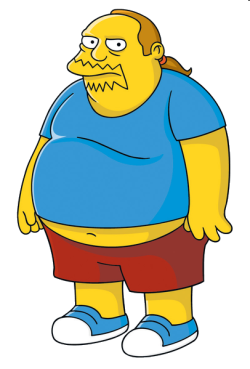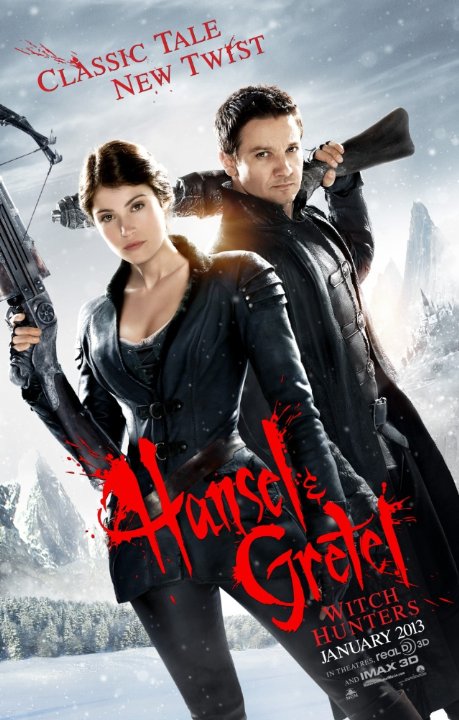Sit back, compadres, and let me spin you a little tale.
Y’all already know how I feel about the “hard sell” and its place at comic conventions. If you don’t, or don’t remember, here’s the harsh language rant, and here’s the kindler, gentler version. If you don’t have the time or inclination to read those, the summary is that–nossir, no ma’am–I don’t like it. I believe you can sell your product without getting in folks’ faces about it, and while some level of assertiveness and engagement is a good thing to have, and there are probably decent debates to be had about where the lines can be drawn between “active” and “overbearing”…
…pardners, there are some times when the behavior in question just unquestionably crosses the line.
Let me take you back to last Friday, the first day of WonderCon Anaheim 2014. Dawn and I have finished setting up our table in the Small Press area, which by happy chance has ended up on the corner of two aisles. True, this year the Small Press area has been moved to the furthest back corner from the entrances, but I remind myself that I thought our placement last year was terrible and yet we ended up having our best Friday ever. Patience. Our displays are up. Dawn’s artwork is ready to catch wandering eyes. 3-day badges have sold out (and apparently Friday-only badges did as well, at least by day’s end). We are pleased to note steady foot traffic almost from the beginning. Maybe last year was a fluke, but maybe not. We’ll let those who are interested come to us, check us out, and…
“DO YOU LIKE COMICS?!”
Like a lightning bolt in an otherwise clear summer sky, a high-pitched voice rent through the background noise. I sought the source of this disturbance and spied a woman out in the middle of the aisle, accosting passerby repeatedly with this question. If they answered in the affirmative (which, c’mon… you’re at a COMICS CONVENTION… this is like someone at a Farmer’s Market shouting “DO YOU LIKE VEGETABLES?!”) then she would corral them over to a table in the midst of our row, pulling them past all the other vendors, whereupon the man there would offer them free comics and candy, and (I’m guessing) a sales pitch. Rinse and repeat.
Now mind you, I’m also observing a percentage of people who are visibly shying away from her when she suddenly inserts herself into their path and barks her inquiry. They flee, and as long as she’s there they probably won’t be back. This is not good. The only times people are walking down that big aisle in peace are the times she’s playing pied piper to those who said yes (or probably in more than one case, were just too afraid to say no). If this intrusive hawking was happening from their paid table space, I would still be annoyed, but the fact she was repeatedly leaving it and going out not just to the middle of our row but to the main artery intersection leading to it? The fact she was herding people past several of her neighbors, who had also paid for their tables? My teeth were starting to grind. A lot.
Still, I’m not a naturally confrontational person, nor is Dawn. We, and our friends at the table next to us, suffered in silence, wondering how many people we were missing out on that might have browsed our wares (and possibly bought things) had they felt comfortable doing so.
Maybe that would have been the sad state of things for the rest of the convention. Except then it got worse.
Two people were right in the middle of checking out Dawn’s art display when the woman barged in with her pitch and ran them off.
Could someone seriously be this oblivious to exhibitor etiquette, or was this on purpose? Either way, I’d had enough, but first I went to ask some veteran exhibitor friends if that kind of behavior was merely rude or actually against the convention rules (I vaguely recalled some sort of prohibiton against operating outside your booth). They agreed it sucked from an “empathy towards your fellows” standpoint but weren’t sure, and suggested I bring it up to the WonderCon staff.
So, for the first time ever, I found myself seeking out the folks responsible for keeping order on the exhibit floor to express my concerns about another exhibitor. You may say I should have directly confronted her myself rather than doing this, but really, I figured at worst all they’d do is warn her to stop, and I wouldn’t have created an awkward atmosphere between us personally for the rest of the weekend. Also I wasn’t even sure I had grounds for complaint, but the moment I said what was happening the staff, to their credit, were quite sympathetic and informed me in no uncertain terms that it was against Con rules, and a floor manager went out there and then to see if it was still happening. According to another text I’d gotten from Dawn, not only was it still happening but another exhibitor in our row had now joined in hawking his wares in the aisle, perhaps feeling it was the only way to compete.
So then, you may ask, why was I talking up being a vigilante in this blog title? I went to the proper authorities, and they took care of it, right?
Well, no, I’m afraid not. I don’t know if the floor manager never made it over there or what, but when I got back to our table it was still happening. 30 minutes went by, and it was still happening, with no sign of official intervention…
…and then suddenly there the woman was, close enough to reach out and touch, fully blocking our table as she was pitching her table to the latest group to come by.
That was the last straw. I waited until she returned once again to that main aisle way, got up, went over, got her attention, and politely explained to her that what she was doing was not permitted, and furthermore was really unfair to the rest of us. Her response was telling… no argument, no protest, except to wave towards the other guy now handing out bookmarks and demand “Well you better tell him, too!” And you know what? At that point, in for a penny, in for a pound– I had no problem going right over and doing that (though I felt like I was the adult at a playground having to say “I don’t care who started it, it’s going to stop!”). His response was more along the lines I expected, basically that he figured anything that drove more traffic “our way” was a good thing… which ignores that both of them were driving traffic specifically to their tables, when they weren’t just driving people away from the area entirely.
I never touched either person, nor raised my voice, nor uttered a harsh word. It’s possible, however, that because of my natural largeness, I did loom. It’s possible that my politeness came across as the barely restrained rage that, admittedly, it was. I was past caring about anything except both the offending parties returning immediately to their tables and staying there for the rest of the evening. Which they did.
Well, okay, I later spied the woman up and about again, handing out flyers down the way where she maybe hoped I couldn’t see her, but at least she was no longer walking people past us, or accosting them while they were very obviously trying to browse another exhibitor’s wares. I guess at that point, I figured I’d done all I could be expected to do, and since our sales had finally starting picking up (go figure!), that was enough.
Still, that night in our hotel I pondered how it was going to be for the next two days. Would the people I’d confronted resent me? Or worse yet, lapse back into more of the same behavior? I didn’t regret my actions and felt them more than reasonable under the circumstances, but I’d certainly have to deal with at least some awkwardness as a consequence.
Or not. Friday night was the last I saw of either of the people I’d had a word with. When we set up on Saturday, the woman was nowhere to be seen, and the other table was entirely empty (later bearing a note that they’d moved to a booth elsewhere on the floor). And Dawn and I proceeded to have our best single sales day ever in our entire history of exhibiting.
I don’t know enough to claim I had anything to do with the vanishing acts. The man running the table the woman was leading people to was still around, but I didn’t talk to him. If he resented my interference, so be it, but it seemed like he ended up doing just fine getting customers without her help. For all I know he never really wanted her to be doing what she did. Maybe she decided it was a hostile environment? Or maybe she had only planned to be there for one day, anyhow? As for the other folks, if they were dissatisfied with their position and took the opportunity to move? More power to them.
Maybe my speaking up made the difference, and maybe it didn’t, but whether their behavior was born of ignorance or a misguided sense of competitiveness, I do feel better that I confronted it rather than just stewing and letting it slide. I don’t really consider myself the Batman type, but at least just this once, a little bit of courage in my convictions seemed to go a long way.









